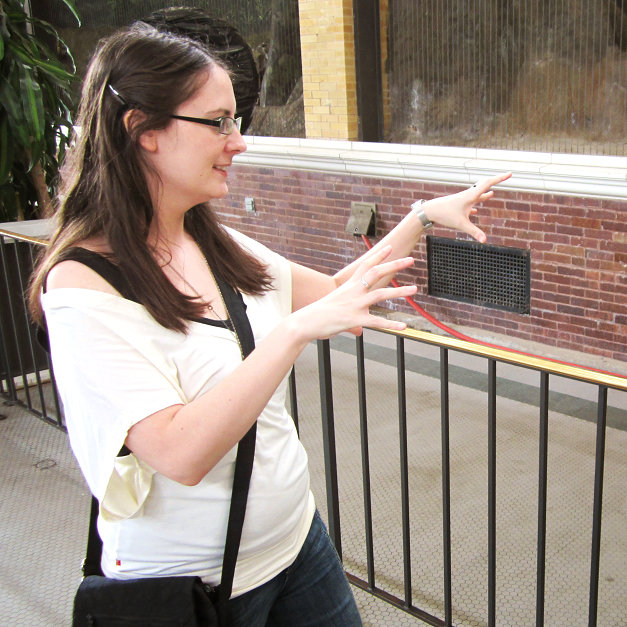I got hung up on contractions this morning regarding the word “you’ve”. Normally, I’d say “you’ve got a problem”, which expands to “you have got a problem”, which isn’t wrong, but I normally wouldn’t say. Not contracting, I’d say “you have a problem”, so then should I just say “you’ve a problem”? That sounds weird in my head. Is this just a US English problem?
In the sentence “you have a problem”, “have” is the main verb. When reduced to the clitic “'ve”, it becomes a weak form and is only expected to be used as an auxiliary verb. These types of verbs must be followed by the main verb. “a” is not a verb. Thus, we insert “got”.
If we do not insert “got”, the stress in the sentence moves and it sounds overly affected.
I’m not too sure, but I think “be” (“is”, “are”) is the only verb that can be contracted and still remain a main verb. I’m not too sure why.
🏆 Award for well thought out and educational answer!
I can’t find the clitic.
To add to this, “have got” is perfect tense. “You’re a man” is different because “are” isn’t an auxiliary verb here, it is just added to “you” as a contraction. That phrase would probably be an existential clause.
I miss World Wide Words!
English is weird. It can be understood through tough thorough thought, though
My god it’s a tongue twister for my internal monologue.
You’ve mail!
I’ve a solution!
What’s it?
It seems that i’m. The solution’s me.
“You’ve a problem” actually still works, but it’s an older way of saying it
Yeah, I’ve definitely heard Brits say similar phrases
Yes, English is weird.
‘Bough’ and ‘cough’ are not pronounced the same. ‘Bough’ and ‘bow’ are pronounced the same. ‘Knee’ and ‘Leigh’ are pronounced the same. ‘Neigh’ and ‘nay’ are pronounced the same. ‘Polish’ (the nationality) and ‘polish’ (as in what you do to a metal object) are not pronounced the same. ‘Tear’ (as in to rip) and ‘tear’ (as in to cry) are spelled the same, but not pronounced the same. Other words which are spelled the same, but pronounced differently:
resume / resume present / present record / record close / close use / use live / live
‘Bough’ and ‘bow’ are pronounced the same
Except, of course, when “bow” is pronounced “bow” instead.
I shot the boughs with my bow and then gave a bow to my beau!
‘Knee’ and ‘Leigh’ are pronounced the same.
Well they rhyme, but I wouldn’t go as far as to say they’re pronounced the same
Leigh can be pronounced like ‘Lee’ or ‘Lay’
No I know that, but knee isn’t pronounced like Lee :P
What does leigh pronounced lay mean…?
I’ve got all but the
use/useone. What’s the other usecase if one is “to consume”?It has utility = it has use
To consume = to use
You can have a use for something, and you can also use something (first one is pronounced the same as the end of ‘papoose’, second one is pronounced the same as ‘ooze’)
Thanks @frosty99c@midwest.social and @MurrayL@lemmy.world!
The noun ‘use’, as in ‘this has a specific use’
What’s the use of giving you the answer when you can look it up on the internet?
To have a brief conversation. I can look everything up myself, but it’s nice not being a basement dweller every now and then.
It was just my crass humor. I used the noun version of the word “use” because you said you couldn’t figure out how to use it.
Tom Scott has a great video on contractions.
Here is an alternative Piped link(s):
https://piped.video/CkZyZFa5qO0
Piped is a privacy-respecting open-source alternative frontend to YouTube.
I’m open-source; check me out at GitHub.
You’ve a problem is proper English as well, albeit more often used in the UK than in NA, feel free to use it!
'uve problm bruv?
Yeah but that’s not English only. Try saying “de el” in Spanish and it sounds super wrong, for similar reasons. Sometimes contractions kill what they replace
No, this is a problem with the language in general.
It depends on your emphasis. “You HAVE got a problem there,” doesn’t sound weird when you emphasize the have. You’ve a problem doesn’t sound weird, just a bit British.
It also has secret rules look up adjectives ordering and vowel ordering.
I actually think that 'you have a problem’s and ‘you have got/you’ve got a problem’ are subtely different in meaning. If someone has something, they may have had it all along. It sort of has an ongoing ontological quality. If someone has got something, it implies that they got it at some point in time. I think.
You’ve got mail!
Goodbye!
“you have got a problem”, which isn’t wrong
Can someone explain to me, why isn’t it “you have gotten a problem”?











